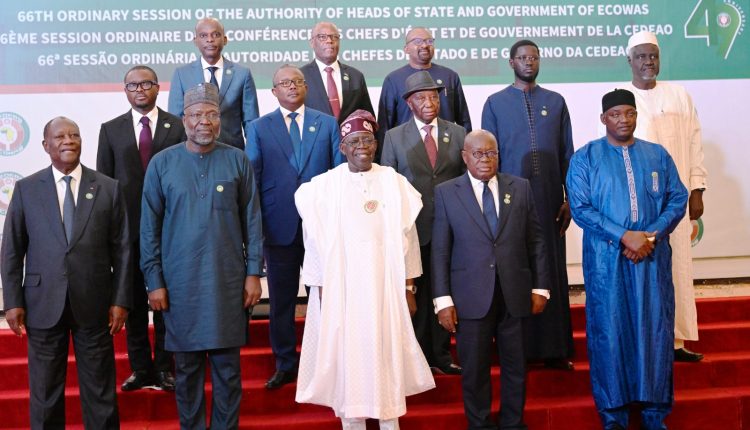By Ifeanyi Onuba
According to Article 3 of the Revised ECOWAS Treaty, one of the main objectives of ECOWAS is to promote the economic integration of the region by establishing, among other things, a Free Trade Area.
The instrument created for this purpose is the ECOWAS Trade Liberalisation Scheme (ETLS). The ETLS is a tool that aims at the operationalization of the Free Trade Area.
The ETLS mechanism ensures the free movement of originating products without the payment of customs duties and taxes of equivalent effect on importation into ECOWAS Member States.
The ETLS was established in 1979 and at that time only covered agricultural products and handmade crafts. Then, in 1990, it was extended to industrial products. This expansion required the formulation of rules relating to the definition of the concept of “products originating” from ECOWAS.
The “Rules of Origin” have therefore been stated. An industrial product, which complies with one of these Rules of Origin can benefit from the advantages of the ETLS.
The Economic Community of West African States has long been at the forefront of regional integration, and at the heart of this mission lies the ECOWAS Trade Liberalisation Scheme (ETLS).
This ambitious framework, designed to eliminate trade barriers and facilitate the free movement of goods across member states, is proving to be one of the most transformative economic policies in West Africa. As the region faces new economic challenges and opportunities, the ETLS remains a crucial tool for unlocking the full potential of intra-African trade.
For decades, businesses in West Africa struggled with high tariffs, complex customs procedures, and restrictive national policies that stifled regional trade. The ETLS, however, has provided a clear pathway toward overcoming these obstacles by eliminating import duties on goods originating within ECOWAS member states, and reducing non-tariff barriers, such as complex licensing requirements, facilitating customs cooperation to speed up trade across borders.
The ETLS allows for the free movement of goods between member countries without customs duties or taxes.
To qualify as an originating product, at least 60 per cent of a product’s raw materials must come from the ECOWAS region.
Products that don’t meet the 60 per cent criteria may still qualify if at least 30 per cent of the value added to the product comes from the region.
The ETLS also aims to remove non-tariff barriers and establish a common customs tariff. It covers unprocessed goods like livestock, fish, plant, and mineral products.
It also covers traditional handicraft products like wooden cooking utensils, mats, carpets, and footwear.
This policy has directly boosted regional trade, allowing manufacturers, small businesses, and agribusinesses to expand their markets beyond national borders. Instead of being isolated by artificial economic boundaries, West African businesses now have access to a market of over 400 million consumers.
One of the most remarkable aspects of the ETLS is its role in promoting industrialization. By providing tariff-free access to regional markets, the scheme incentivizes local production and reduces dependence on imports from outside the continent. This, in turn, strengthens domestic industries, creates jobs, and enhances value addition within the region.
For instance, agricultural processing industries in countries like Ghana, Nigeria, and Côte d’Ivoire have leveraged the ETLS to expand their reach across West Africa, adding value to local raw materials before exporting them. This trend not only increases revenue but also fosters self-sufficiency within the region.
The ETLS is not just about West Africa—it serves as a model for the African Continental Free Trade Area, which aims to integrate markets across the entire continent. By successfully implementing trade liberalization policies, ECOWAS has demonstrated that regional economic cooperation is achievable and beneficial.
As AfCFTA gains momentum, ECOWAS has the opportunity to lead the way in shaping Africa’s economic future. A fully functional ETLS will not only strengthen West Africa’s economy but also position the region as a key driver of continental trade integration.
The ECOWAS Trade Liberalisation Scheme is more than just a policy—it is a vision for a prosperous, interconnected West Africa. By breaking down trade barriers, promoting industrialization, and setting the stage for Africa-wide economic integration, the ETLS is driving regional transformation.
For West Africa to achieve its full economic potential, all stakeholders—governments, businesses, and policymakers—must commit to the success of this initiative. The time to deepen regional trade cooperation is now, and the ETLS is the foundation upon which a thriving West African economy can be built.
Ifeanyi Onuba, a chartered accountant, sent this piece from Abuja


